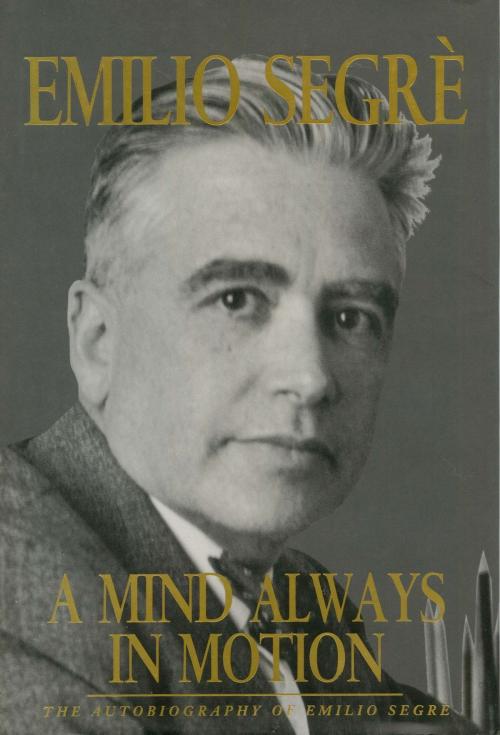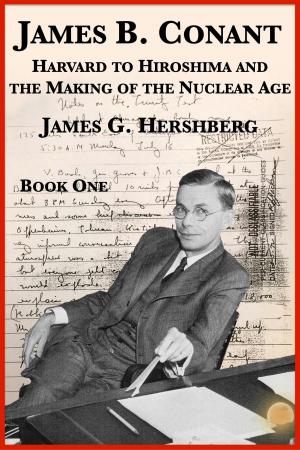A Mind Always in Motion: The Autobiography of Emilio Segrè
Nonfiction, Science & Nature, Science, Physics, Nuclear Physics, Other Sciences, History, Biography & Memoir| Author: | Emilio Segrè | ISBN: | 1230001389968 |
| Publisher: | Plunkett Lake Press | Publication: | October 18, 2016 |
| Imprint: | Language: | English |
| Author: | Emilio Segrè |
| ISBN: | 1230001389968 |
| Publisher: | Plunkett Lake Press |
| Publication: | October 18, 2016 |
| Imprint: | |
| Language: | English |
Born in Italy to a well-to-do Jewish family, Emilio Segrè (1905-1989) became Enrico Fermi’s first graduate student in 1928, contributed to the discovery of slow neutrons and was appointed director of the University of Palermo’s physics laboratory in 1936. While visiting the Radiation Laboratory in Berkeley, California in 1938, he learned that he had been dismissed from his Palermo post by Mussolini’s Fascist regime. Ernest O. Lawrence hired him to work on the cyclotron at Berkeley with Luis Alvarez, Edwin McMillan, and Glenn Seaborg. Segrè was one of the first to join Oppenheimer at Los Alamos, where he became a group leader on the Manhattan Project. In 1959, he won the Nobel Prize in physics for the discovery of the antiproton. He was a professor of physics at UC Berkeley from 1946 until 1972.
“[A] readable, absorbing, interesting autobiography... A valuable contribution by a person who witnessed the development of much of modern nuclear physics. Segrè’s description of the historic neutron experiments performed in Rome during the mid-1930s by Enrico Fermi’s group, of which Segrè was a member, is of inestimable worth.” — Glenn T. Seaborg, ***Physics Today***
“*A Mind Always in Motion* is Emilio Segrè’s account — published four years after his death in 1989 — of his personal life and his life in physics... It is absorbing, moving in places and frequently revealing. Segrè noted in his preface, ‘I have not sought to display manners and tact I never had, and I have tried to treat myself no better than any one else.’ He ably succeeded in these purposes.” — Daniel J. Kevles, ***Nature***
“For general readers with an interest in the history of nuclear physics, Segrè... is among the most personable witnesses.” — ***Publishers Weekly***
Born in Italy to a well-to-do Jewish family, Emilio Segrè (1905-1989) became Enrico Fermi’s first graduate student in 1928, contributed to the discovery of slow neutrons and was appointed director of the University of Palermo’s physics laboratory in 1936. While visiting the Radiation Laboratory in Berkeley, California in 1938, he learned that he had been dismissed from his Palermo post by Mussolini’s Fascist regime. Ernest O. Lawrence hired him to work on the cyclotron at Berkeley with Luis Alvarez, Edwin McMillan, and Glenn Seaborg. Segrè was one of the first to join Oppenheimer at Los Alamos, where he became a group leader on the Manhattan Project. In 1959, he won the Nobel Prize in physics for the discovery of the antiproton. He was a professor of physics at UC Berkeley from 1946 until 1972.
“[A] readable, absorbing, interesting autobiography... A valuable contribution by a person who witnessed the development of much of modern nuclear physics. Segrè’s description of the historic neutron experiments performed in Rome during the mid-1930s by Enrico Fermi’s group, of which Segrè was a member, is of inestimable worth.” — Glenn T. Seaborg, ***Physics Today***
“*A Mind Always in Motion* is Emilio Segrè’s account — published four years after his death in 1989 — of his personal life and his life in physics... It is absorbing, moving in places and frequently revealing. Segrè noted in his preface, ‘I have not sought to display manners and tact I never had, and I have tried to treat myself no better than any one else.’ He ably succeeded in these purposes.” — Daniel J. Kevles, ***Nature***
“For general readers with an interest in the history of nuclear physics, Segrè... is among the most personable witnesses.” — ***Publishers Weekly***















